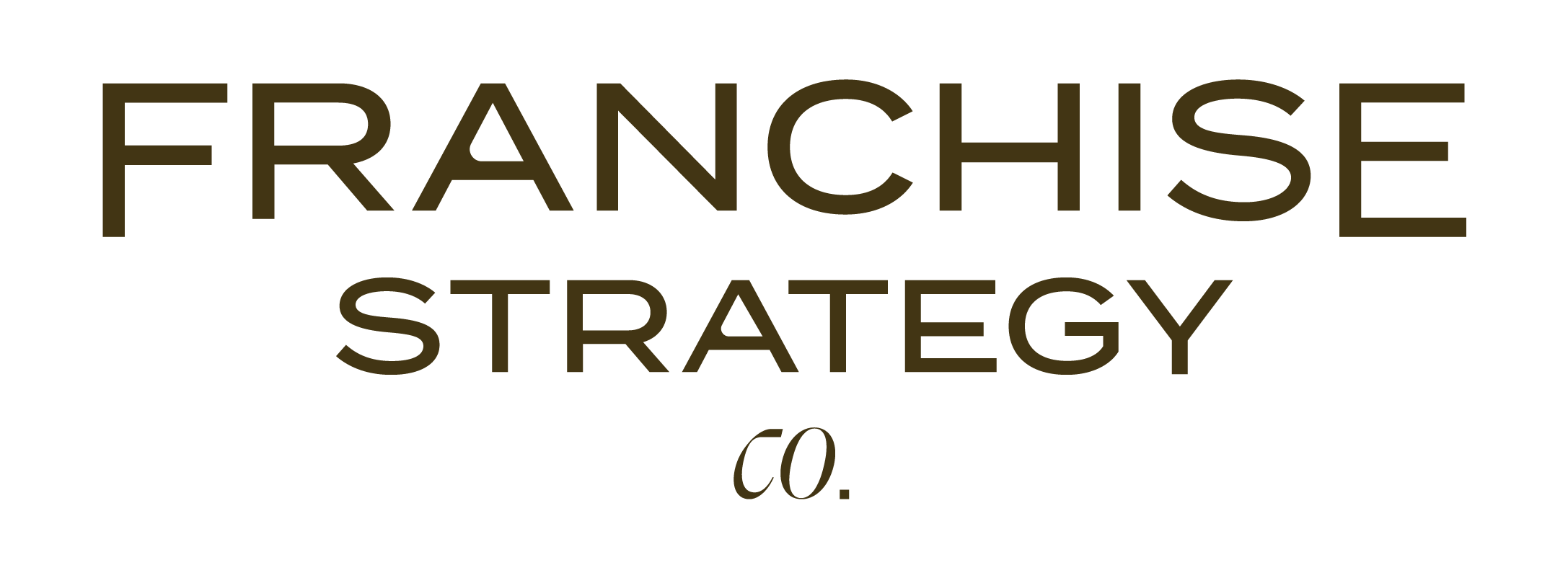Choosing between a franchise or license can significantly impact your business. This article dives into the key differences in control, costs, and operations, enabling you to make an informed decision on franchise v license for your business.
Key Takeaways
-
Franchising involves operating under an established brand with comprehensive support, whereas licensing allows for broader operational freedom with less oversight on intellectual property use.
-
Franchise agreements entail significant initial costs and ongoing fees, while licensing agreements typically have lower costs and simpler fee structures based on royalties.
-
Choosing between franchising and licensing depends on business goals, available resources, and the desired level of operational control; consulting legal experts is recommended for compliance and informed decision-making.
Table of contents
- Key Takeaways
- Understanding Franchising
- Exploring Licensing
- Key Differences Between Franchising and Licensing
- Pros and Cons of Franchising
- Pros and Cons of Licensing
- Choosing Between Franchising and Licensing
- Summary
- Frequently Asked Questions
- What is the primary difference between franchising and licensing?
- What types of businesses are best suited for franchising?
- What are the legal requirements for a franchise agreement?
- How does a licensing agreement benefit a business?
- What should I consider when choosing between franchising and licensing?
- Related Links
Understanding Franchising

Franchising is a powerful business model that allows entrepreneurs to operate under an established brand’s umbrella. This model involves a franchise agreement where a franchisee uses the franchisor’s trademark and follows set business operations standards. Typically, the franchisee pays initial franchise fees and ongoing royalties to the franchisor, who in return provides training, support, and a proven business model.
Franchising offers a significant advantage: the ability to leverage a well-known brand and a pre-established customer base. Service-based businesses like chain restaurants, hotels, and cleaning services commonly utilize this model to expand rapidly while maintaining brand consistency.
Next, we explore successful franchise examples and the legal intricacies of franchise agreements.
Examples of Successful Franchises
One of the most famous examples of successful franchises is McDonald’s, which boasts over 36,000 restaurants worldwide. This global presence showcases the power of franchising. Franchisees benefit from operating under a recognized brand, with an established customer base and comprehensive support from the franchisor.
Another example is Taco Bell, which, like McDonald’s, leverages its established brand to attract franchisees. These companies illustrate how a franchisee’s business can thrive under a proven model, highlighting the value of franchising.
The success stories of these franchises highlight the benefits of brand recognition and operational support.
Franchise Agreements and Legal Regulations
Franchise agreements are complex documents that outline the terms of the franchise relationship between the franchisor and the franchisee. These agreements include detailed provisions on the use of the franchisor’s trademark, business operations standards, and the financial obligations of the franchisee. Compliance with these terms is crucial for maintaining the integrity of the brand and the smooth operation of the franchisee’s business.
Legal regulations governing franchising are stringent, involving both federal and state franchise laws. The Federal Trade Commission (FTC) mandates that franchisors provide a Franchise Disclosure Document (FDD) to potential franchisees, ensuring transparency and informed decision-making. Additionally, state-specific regulations may impose further requirements, adding another layer of complexity to the franchising process.
The legal expenses associated with franchising can be substantial, covering the preparation of documents and compliance with regulatory requirements. However, these costs are often justified by the comprehensive support and established business model that franchising offers. Grasping these legal frameworks is crucial for anyone contemplating a franchise agreement.
Exploring Licensing

Licensing, in contrast to franchising, involves granting permission to another party to use certain intellectual property, such as trademarks or patents, without the broader operational control seen in franchising. This model allows licensors to expand their market presence and generate revenue through royalty fees, while licensees benefit from the brand recognition and established customer base of the licensor.
Licensing agreements are typically easier and cheaper to set up compared to franchise agreements. They focus primarily on the use of intellectual property rather than comprehensive business operations, making them a more flexible option for many businesses.
Next, we explore well-known licensing examples and the legal aspects of licensing agreements.
Licensing Examples
Disney and Calvin Klein are prime examples of successful licensing agreements. Disney licenses its characters and brands to various manufacturers, allowing them to produce a wide range of products from toys to clothing. Calvin Klein, on the other hand, licenses its brand for products like underwear, perfume, and jeans, leveraging its strong brand recognition to expand its market reach.
Another notable example is Nestle’s $7.15 billion licensing agreement with Starbucks, granting Nestle the exclusive rights to sell Starbucks’ products globally. These examples show how licensing can effectively grow a brand and increase market presence without extensive operational control.
License Agreements and General Contract Law
License agreements typically grant rights to use registered trademarks and other intellectual property, without the operational guidelines found in franchise agreements. These agreements specify the fee structure and the permitted uses of the intellectual property, ensuring that the licensee’s business operates within the boundaries set by the licensor.
While franchise agreements are governed by specific federal and state regulations, licensing agreements are primarily subject to general contract law. This distinction simplifies the legal requirements for licensing, making it a more accessible option for many businesses.
Grasping the legal framework of licensing agreements protects both parties’ interests and ensures a successful partnership.
Key Differences Between Franchising and Licensing
Understanding the key differences between franchising and licensing is essential for making an informed decision. While both models involve a business agreement, they differ significantly in terms of control, scope, and financial commitments.
We will now explore these differences in more detail, clarifying what each model entails.
Control Over Business Operations
Franchisors maintain extensive control over the business operations of their franchisees, ensuring consistency and adherence to brand standards. This comprehensive control extends to various aspects of the franchisee’s business, from marketing strategies to operational procedures, safeguarding the brand’s reputation.
In contrast, licensees enjoy greater operational freedom, as licensors exert minimal control over how their intellectual property is used. This flexibility allows licensees to innovate and adapt their business practices without the stringent oversight typical of franchising.
Yet, this independence comes with the responsibility of upholding the quality and integrity of the licensed brand.
Scope of Business Agreement
Franchise agreements encompass a wide range of elements, including:
-
The use of trademarks
-
Products
-
Services
-
Detailed operational guidelines
These agreements are designed to create a continuing commercial relationship, ensuring that franchisees operate as independent branches of the franchisor’s brand.
Licensing agreements, on the other hand, are more limited in scope, typically covering only the use of specific trademarks and intellectual property. This narrower focus allows for simpler and more flexible agreements but may limit the potential for brand expansion and control.
Initial Costs and Ongoing Fees
Franchising involves significant initial costs and ongoing fees, including franchise fees, royalty fees, and advertising contributions. These financial commitments are detailed in the franchise agreement, ensuring that franchisees understand their obligations from the outset.
Licensing agreements typically involve lower initial costs and simpler fee structures, usually in the form of royalty payments based on sales. This cost advantage makes licensing an attractive option for businesses looking to expand without the heavy financial burden associated with franchising.
Pros and Cons of Franchising
Franchising offers numerous benefits, including access to a proven business model, extensive support, and the ability to leverage an established brand. However, it also comes with challenges such as high fees and strict regulatory requirements.
Next, we delve deeper into the advantages and disadvantages of franchising.
Benefits of a Proven Business Model
Operating under a proven business model significantly reduces the risks associated with starting a new business. Franchisees benefit from the franchisor’s experience, training, and ongoing support, which can be invaluable in navigating the complexities of business operations.
This support often includes marketing assistance, operational guidance, and access to a network of other franchisees, creating a collaborative environment that fosters success. The pre-established customer base and brand recognition further enhance the franchisee’s chances of success.
Challenges of Franchise Regulation
Franchise regulation is stringent, requiring compliance with both federal and state laws. The mandatory disclosure of the Franchise Disclosure Document (FDD) is just one aspect of the regulatory framework designed to protect potential franchisees.
These regulations can be burdensome, involving significant legal expenses and limiting the franchisee’s control over major business decisions. Despite these challenges, the regulatory environment ensures a level of transparency and protection that can be beneficial for both parties in the franchise relationship.
Pros and Cons of Licensing
Licensing offers a flexible and cost-effective way for businesses to expand their market presence. However, it also comes with limitations, such as less control over how the brand is represented.
Next, we explore the advantages and disadvantages of licensing in more detail.
Flexibility and Independence
One of the primary advantages of licensing is the flexibility it offers. Licensees have the freedom to use a recognized logo or formula while maintaining control over their business operations. This independence allows for innovation and adaptation, making licensing a secure investment for many businesses.
This model is particularly beneficial for companies looking to expand their business rapidly without the need for extensive resources or new locations. The ability to leverage existing brand recognition can also contribute to faster market penetration and increased revenue.
Limitations of Licensing Agreements
Despite its advantages, licensing also has its limitations. Licensors may face risks related to the loss of control over how their brand and products are represented by licensees. This lack of control can impact the overall brand image and quality.
Licensees, on the other hand, might encounter challenges related to their dependence on the licensor’s intellectual property. This dependence can limit their ability to innovate and grow independently, posing potential risks for their licensee’s business operations.
Choosing Between Franchising and Licensing
Choosing between franchising and licensing depends largely on your business goals and needs. Both models offer unique advantages and challenges, and the right choice will depend on your specific circumstances, including licensing and franchising.
We will now provide guidance on how to make this important decision.
Assessing Your Business Goals
Evaluating your business goals is the first step in choosing between franchising and licensing. Consider factors such as your brand’s recognition, profitability, and the resources available to you. Licensees can often enter markets faster and with fewer resources, leveraging existing brand recognition to their advantage.
On the other hand, franchising might be more suitable if you prefer a structured environment with extensive support and a proven business model. Aligning your choice with your business aspirations and management style is crucial for long-term success.
Consulting Legal Experts
Consulting legal experts is essential when deciding between franchising and licensing. Legal professionals can help ensure that your agreements comply with relevant laws and protect your interests. They can also provide valuable insights and due diligence, helping you make an informed decision.
Legal advice is crucial given the complexities of franchise regulations and the risks associated with licensing agreements. By seeking expert guidance, you can navigate these challenges more effectively and secure a successful business partnership.
Summary
In conclusion, both franchising and licensing offer viable paths for business expansion, each with its unique set of advantages and challenges. Franchising provides a comprehensive support system and a proven business model, making it an attractive option for those looking to minimize risk. However, it comes with significant financial commitments and regulatory requirements.
Licensing, on the other hand, offers greater flexibility and lower initial costs, but it may lack the extensive support and control associated with franchising. Ultimately, the choice between franchising and licensing should be guided by your business goals, resources, and management style. By thoroughly understanding both models and seeking legal advice, you can make an informed decision that aligns with your vision for success.
Frequently Asked Questions
What is the primary difference between franchising and licensing?
The primary difference between franchising and licensing lies in the level of control and support; franchising entails a comprehensive business model with substantial oversight from the franchisor, whereas licensing permits greater operational freedom for the licensee, focusing primarily on intellectual property use.
What types of businesses are best suited for franchising?
Service-based businesses, especially chain restaurants, hotels, and cleaning services, are best suited for franchising due to their proven operational models and strong brand recognition. These characteristics facilitate successful expansion and franchisee support.
What are the legal requirements for a franchise agreement?
Franchise agreements must provide a Franchise Disclosure Document (FDD) to potential franchisees and comply with federal and state regulatory requirements to ensure transparency and protect the interests of the franchisee. Adhering to these legal standards is essential for both parties involved.
How does a licensing agreement benefit a business?
A licensing agreement benefits a business by enabling it to expand its market presence through the use of established intellectual property, resulting in greater brand exposure and quicker market entry, alongside potential revenue generation from royalty fees.
What should I consider when choosing between franchising and licensing?
When choosing between franchising and licensing, you should carefully consider your business goals, desired level of control, available resources, and the regulatory environment. Consulting with legal experts can provide important insights for making an informed decision.
Related Links


